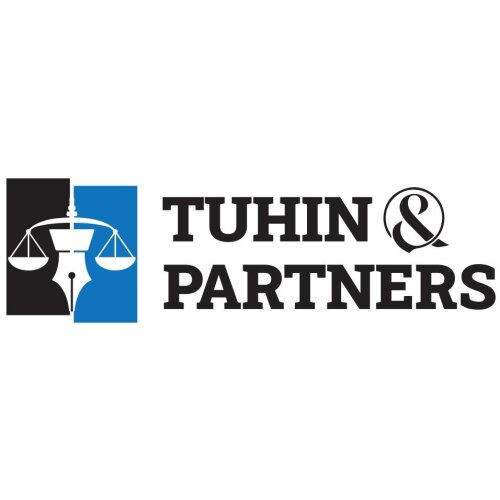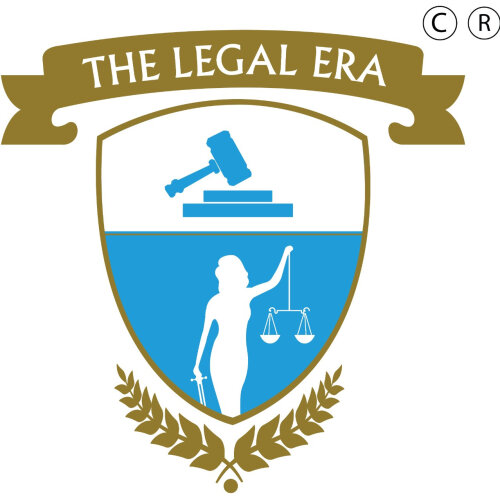Best Government Contract Lawyers in Bangladesh
Share your needs with us, get contacted by law firms.
Free. Takes 2 min.
Or refine your search by selecting a city:
List of the best lawyers in Bangladesh
About Government Contract Law in Bangladesh
Government Contract Law in Bangladesh deals with the legal framework governing agreements between the government and private entities for procurement of goods, services, and works. This is an essential part of public sector administration, ensuring transparency, accountability, and efficiency in the use of public funds. The legal environment is shaped by several pieces of legislation such as the Public Procurement Act, 2006, and its subsequent amendments and accompanying rules of procedure which standardists how tenders are evaluated, awarded, and executed.
Why You May Need a Lawyer
There are several situations where professional legal advice may become necessary in the realm of government contracts:
- Contract Negotiation: Ensuring terms and conditions are favorable and compliant with local laws.
- Tender Submission: Assistance with the preparation and submission of tender documents.
- Compliance Issues: Navigating complexities related to compliance with public procurement laws.
- Dispute Resolution: Addressing disputes arising from contract performance or tender process in an efficient manner.
- Regulatory Changes: Adapting to legislative amendments and understanding their implications.
Local Laws Overview
The legal landscape for government contracts in Bangladesh is primarily shaped by the following:
- Public Procurement Act, 2006: Establishes the basic legal framework for public procurement.
- Public Procurement Rules, 2008: Provides detailed procedures for the implementation of the procurement process.
- e-GP (Electronic Government Procurement): An electronic platform designed to enhance transparency and efficiency in public procurement.
- Central Procurement Technical Unit (CPTU): Monitors and improves procurement practices across government entities.
Frequently Asked Questions
What is the significance of the Public Procurement Act, 2006?
The Public Procurement Act, 2006, sets the core legal structure ensuring fairness and efficiency in the procurement processes, mandating adherence to international standards.
Can foreign entities participate in government tenders in Bangladesh?
Yes, foreign entities can participate, though conditions and requirements for international tenders are distinct from those that apply to local businesses.
What are some common challenges faced in government contracting?
Common challenges include navigating complex legal requirements, facing stiff competition, and handling disputes related to contract performance and payment issues.
How can legal advice help in the tendering process?
Legal advice can help ensure compliance with all procedural requirements, mitigate risks, and maximize chances for a successful bid.
Are there penalties for non-compliance with procurement rules?
Yes, there can be severe penalties including fines, blacklisting from future contracts, and even legal action depending on the severity of non-compliance.
Is the government procurement process open to public scrutiny?
The process is designed to be transparent, with e-GP (Electronic Government Procurement) initiatives enhancing visibility and public accountability.
What is the role of the CPTU?
The CPTU oversees and regulates procurement, ensuring adherence to guidelines and fostering improvements in procurement practices.
How does a dispute in government contracting get resolved?
Disputes can be settled through negotiation, mediation, arbitration, or if necessary, litigation in court, depending on the contract terms and legal context.
Can modification of contract terms be made post-award?
Modifications are possible but typically require mutual agreement and compliance with legal stipulations to avoid breaching contract terms.
What are the eligibility criteria for bidders?
Eligibility criteria often include financial stability, technical capability, prior experience, and compliance with statutory requirements, which will vary based on the specific tender.
Additional Resources
For additional support and resources on government contracts, consider reaching out to the following:
- Central Procurement Technical Unit (CPTU): Provides guidance and oversight on public procurement.
- Law Firms Specializing in Government Contracts: Experienced legal professionals who can offer tailored advice and assistance.
- e-GP System: Access to information and updates on tender opportunities can be found on the government’s electronic procurement platform.
Next Steps
If you are in need of legal assistance in the field of government contracts, here are actionable steps you can take:
- Identify the specific area where you need help, such as tender preparation or dispute resolution.
- Consult with a lawyer or legal firm that specializes in government contracts to get tailored advice.
- Gather all relevant documentation and information related to your government contract matter.
- Consider contacting an advisor at the CPTU for insights specific to public procurement guidelines.
- Stay updated with any regulatory changes by regularly reviewing online portals like the CPTU and e-GP system.
Lawzana helps you find the best lawyers and law firms in Bangladesh through a curated and pre-screened list of qualified legal professionals. Our platform offers rankings and detailed profiles of attorneys and law firms, allowing you to compare based on practice areas, including Government Contract, experience, and client feedback.
Each profile includes a description of the firm's areas of practice, client reviews, team members and partners, year of establishment, spoken languages, office locations, contact information, social media presence, and any published articles or resources. Most firms on our platform speak English and are experienced in both local and international legal matters.
Get a quote from top-rated law firms in Bangladesh — quickly, securely, and without unnecessary hassle.
Disclaimer:
The information provided on this page is for general informational purposes only and does not constitute legal advice. While we strive to ensure the accuracy and relevance of the content, legal information may change over time, and interpretations of the law can vary. You should always consult with a qualified legal professional for advice specific to your situation.
We disclaim all liability for actions taken or not taken based on the content of this page. If you believe any information is incorrect or outdated, please contact us, and we will review and update it where appropriate.
Browse government contract law firms by city in Bangladesh
Refine your search by selecting a city.












